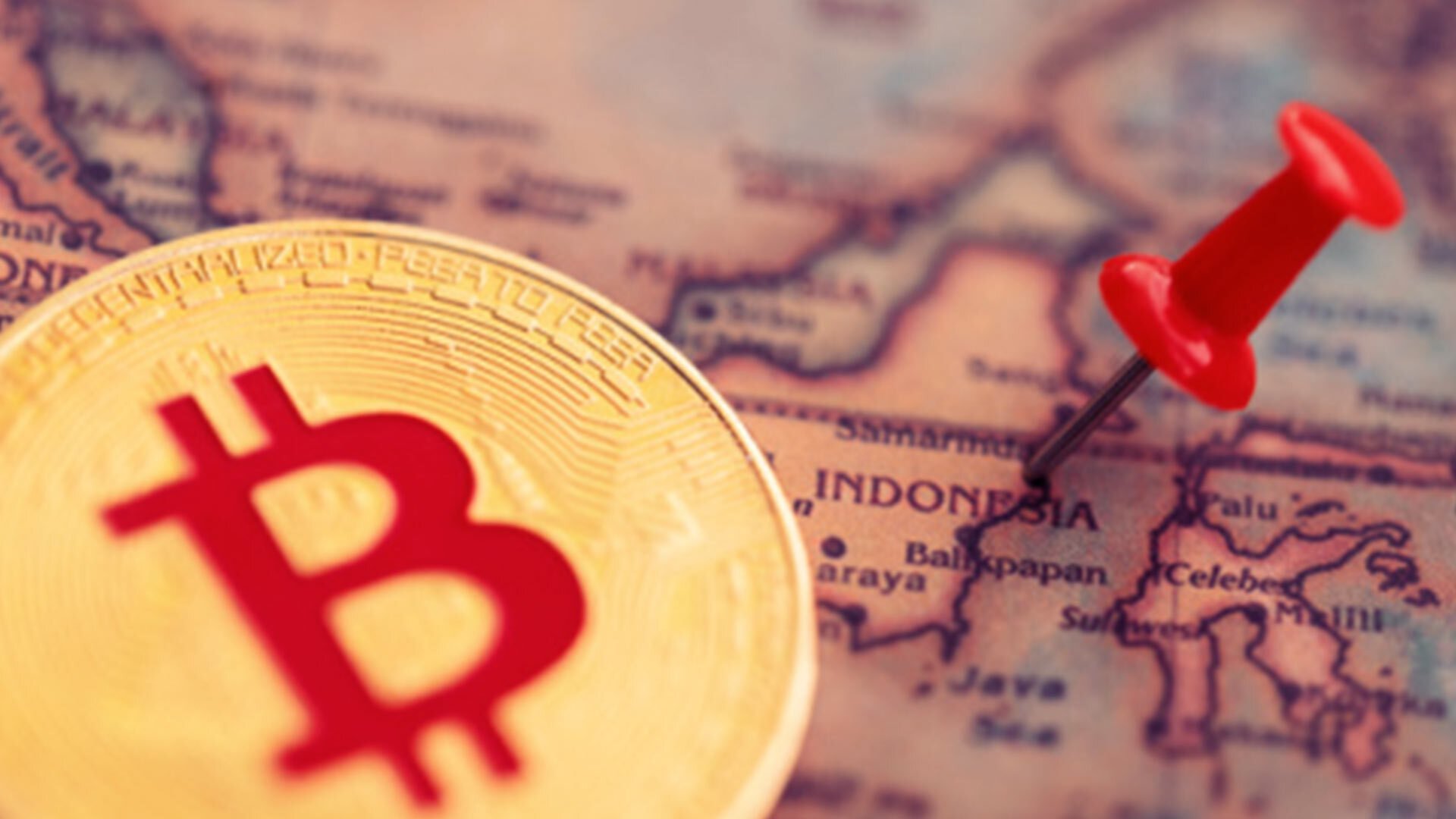The rapid rise of cryptocurrencies has sparked a global frenzy, transforming the way we perceive and engage in financial transactions. And so, it comes as no surprise that an increasing number of nations are venturing into the world of digital finance, establishing their own national crypto exchange.
But, but, but the question is: What drives governments to enter this nascent space, and how will it impact the future of the financial landscape?
So get ready to climb the question wall! Delve into the motivations behind countries creating platforms for crypto exchange. So let’s explore the driving forces behind this captivating phenomenon, and gain insight between governments, cryptocurrencies, and of course the digital economy.
Nations Unleash the Power of National Crypto Exchanges
The fascinating world of cryptocurrencies! In this era of technological progress and ever-changing financial landscapes, digital currencies have emerged as a truly transformative force, reshaping our traditional ideas of money and transactions. These innovative digital assets, known as cryptocurrencies, are gaining popularity and challenging the established norms.
In fact, the rise of cryptocurrencies has been so significant that many nations around the globe. Nations like Russia and Indonesia, are now recognizing the urgent need to establish their own national digital currencies. These national cryptos aim to harness the immense potential of blockchain technology and offer a more secure, efficient, and inclusive financial system for their citizens.

Why National Crypto Exchanges?
By embracing a national crypto exchange, governments can ensure greater transparency, reduce transaction costs, and facilitate faster and more accessible financial services. With the decentralized nature of cryptocurrencies, individuals can benefit from increased financial autonomy, allowing them to have direct control over their funds, even in areas where traditional banking services may be limited.
Not just that but, national crypto exchanges have the potential to promote financial inclusion by providing a digital payment infrastructure that is accessible to all. Including those who are unbanked or underbanked. This opens up new avenues for economic participation and growth. Empowering individuals and fostering innovation within the local economy.
To boot, national digital currencies can enhance cross-border transactions by streamlining international payments. Also by reducing reliance on intermediaries, and mitigating the challenges associated with traditional remittance methods. These advancements have the potential to facilitate global trade and cooperation, enabling seamless financial interactions between nations.
It’s striking to note that the development and implementation of a national cryptocurrency require careful consideration and collaboration between governments, financial institutions, and regulatory bodies. Safeguards must be in place to protect against fraud, money laundering, and other illicit activities. Additionally, public education and awareness initiatives are crucial to help individuals understand the benefits, risks, and responsible use of these digital currencies.
As the world embraces the potential of digital currencies, the establishment of national cryptocurrencies represents a significant step forward in reshaping our financial systems. By harnessing the power of technology, governments can foster financial inclusion, empower individuals, and drive economic growth. So get ready to embark on this exciting journey into the world of national cryptocurrencies, where the possibilities are endless and the future is brimming with promise!
Mapping the Complex Landscape: Russia’s Stance on Cryptocurrency
Russia has had a complex relationship with cryptocurrency, with the government initially warning that it could be used for illegal activities. However, in recent years, the country has taken steps to regulate cryptocurrency and establish a legal framework for its use. Cryptocurrency in Russia is considered property and is subject to the same laws and regulations as other types of property. The creation of CryptoRuble, a digital currency backed by the Russian government, is one of the most significant developments in Russian cryptocurrency. Despite concerns about the potential use of cryptocurrency in illegal activities, the Russian government has taken steps to create a framework for its use and has not banned it.
The Bank of Russia is reportedly testing a digital prototype of the ruble in a regulatory sandbox environment as it considers the possibility of issuing a digital ruble. The digital ruble would be a type of central bank digital currency (CBDC) that would be backed by the government and subject to the same laws and regulations as the traditional ruble. The Bank of Russia is exploring the digital ruble as a way to reduce the country’s reliance on other currencies and to provide a more stable alternative to other cryptocurrencies. If issued, the digital ruble could reduce transaction costs and increase financial inclusion. As Russia moves towards greater acceptance of cryptocurrency, the issuance of a digital ruble could have significant implications for the country’s economy and the future of cryptocurrency.
The Tables Turned Around
According to the Finance Magnets, the twist came on May 29th when Anatoly Aksakov, the head of the State Duma committee disclosed that Russia is set to shift its approach regarding the creation of a national crypto exchange.
Instead of moving forward with its original plans, the government will concentrate on formulating the rules. That will enable private companies to establish and operate these exchanges in the future. This shift in strategy aims to foster private sector participation in the cryptocurrency exchange industry. By paving the way for a more diverse and dynamic market landscape in Russia.
Crypto stakeholders in Russia believe that the country should have multiple cryptocurrency exchanges to limit risks and promote innovation. Oleg Ogienko, Director for Government Relations at BitRiver, said that a single exchange would be risky due to the potential for sanctions, cyber-attacks, and abuse by a dominant market player. Access to these exchanges would be regulated to protect traders. New regulations would be formed for foreign firms looking to operate within Russia. The regulation of private entities makes competitive development and innovation within the industry. According to Ivan Gostev, Commercial Director at GIS Mining, Alexei Tarapovsky, Founder of Anderida Financial Group, noted that crypto exchanges could help Russian companies complete international transactions using crypto following sanctions from the U.S. and other Western countries.
The Russian Ministry of Finance prefers regulating businesses operating these exchanges and digital assets. However, the department reached a compromise with the central bank. That will bring crypto mining activities under regulation and allow crypto use in international payments.
Indonesia’s Crypto Revolution: National Exchange Set to Shake Things Up!
Indonesia is all set to launch its national cryptocurrency exchange in June 2023 as part of a regulatory overhaul. The exchange will act as a clearing house and custodian in the Indonesian crypto market. However, it will facilitate smooth trade and oversee the activities of private exchanges. Currently, crypto assets in Indonesia are traded alongside commodity contracts and supervised by the Commodity Futures Trading Regulatory Agency. However, the regulatory power will shift to the Financial Services Authority following the launch of the national exchange. The exchange will include five out of the 25 registered national crypto exchanges in the country.

The Indonesian government is also planning to launch a central bank digital currency. Hence, it will be the only digital legal tender in the nation. The newly ratified crypto rules define cryptocurrency and other digital assets as regulated financial securities. The exchange was initially planned to be set up by the end of 2022, but it was delayed.
Indonesia’s state-backed crypto exchange is set to promote transparency, accountability, and investor protection. It will be created ahead of the financial supervision reform and overseen by the Commodity Futures Trading Regulatory Agency (Bappebti). The exchange will be transferred to Indonesia’s Financial Services Authority. As part of an economic reform plan implemented over the next two years. The exchange will be regulated and recognized by the government, promoting trust and confidence among investors. A state-backed exchange can also help the government better regulate and manage economic policy through intermediaries. Decentralized cryptocurrencies do not allow for such regulation.
Increasing Demand for National Crypto Exchanges
Cryptocurrency exchanges are becoming more popular worldwide, and several nations have launched their own digital currency exchanges. The exchanges are designed to provide a secure as well as regulated platform for trading cryptocurrencies. They are gaining popularity because they offer a range of benefits to users.
Several nations have launched their own national crypto exchange, including Japan, South Korea, and China. Japan’s exchange, BitFlyer, is one of the largest in the world, licensed by the Japanese Financial Services Agency. South Korea’s exchange, Bithumb, is one of the largest in the world, licensed by the South Korean government. China’s exchange, Huobi, is also a major player in the cryptocurrency market, licensed by the Chinese government.
Other nations, such as Switzerland, Malta, and Estonia, have also launched their own cryptocurrency exchanges. Switzerland’s exchange, SIX Digital Exchange, is a regulated exchange that offers trading in cryptocurrencies and digital assets. Malta’s exchange, OKEx, is a digital asset trading platform that provides a range of services to users. Estonia’s exchange, CoinMetro, is a regulated exchange that offers a range of services, including trading in cryptocurrencies and digital assets.
Conclusion
The rise of national cryptocurrency exchange is a positive development for the market, providing a secure and regulated platform for trading. Therefore, they will also help promote the adoption of cryptocurrencies. As they provide a more accessible and user-friendly platform for users. As more nations launch their own crypto exchanges, the market will continue to grow and evolve.
For more information related to “Why Nations are Creating their own National Crypto Exchange?”, check out SunCrypto Academy.
Disclaimer: Crypto products and NFTs are unregulated and can be highly risky. There may be no regulatory recourse for any loss from such transactions. All content provided is for informational purposes only, and shall not be relied upon as financial/investment advice. Opinions shared, if any, are only shared for information and education purposes. Although the best efforts have been made to ensure all information is accurate and up to date, occasionally unintended errors or misprints may occur. We recommend you to please do your own research or consult an expert before making any investment decision. You may write to us at [email protected].





